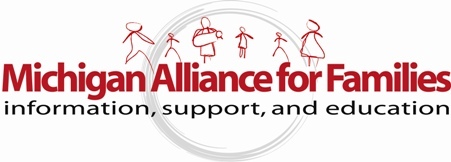Special Education
The Grand Rapids Public Schools Special Education Department meets the unique needs of scholars with disabilities by providing instruction and training to enable them to have access to, and make progress in, the general education curriculum.
Special Education Resources
We offer a full continuum of services and programs across the district and are here to help families identify the best support for their child. All programming and services are determined through the GRPS Special Education Evaluation and Individualized Education Program (IEP) processes.
GRPS Special Education Evaluation
It is the responsibility of the district to identify persons between the ages of birth and 26 who are suspected of having a disability that may affect their educational performance.
Parents or guardians who have a concern about their child’s progress in school, suspect that their child may have a disability or may need Special Education services should contact their building principal in writing to request interventions as designed by the building scholar success team, or a special education evaluation.
Any scholar suspected of having a disability shall be evaluated by a Multidisciplinary Evaluation Team as defined in the Michigan Administrative Rules for Special Education (MARSE) at R 340.1701b (b). In addition to the requirements in R 340.1705 to R 340.1717, the Multidisciplinary Evaluation Team shall do the following:
- Complete a full and individual evaluation.
- Make a recommendation of eligibility and prepare a written report to be presented to the Individualized Education Program Team by the designated Multidisciplinary Evaluation Team member who can explain the instructional implication of evaluation results. The report shall include information needed by the Individualized Education Program Team to determine all of the following:
- Eligibility
- A scholar’s present level of academic achievement and functional performance
- The educational needs of the scholar
Special Education personnel who are authorized to conduct evaluations of scholars suspected of having a disability may provide consultation to general education personnel for the purpose of prevention and intervention.
Individualized Education Program (IEP)
An Individualized Education Program (IEP) is a written plan for a scholar with a disability who requires special education programs and/or services to make progress in the general education curriculum. Instruction may be provided within the general education classroom with or without accommodations and/or in a classroom with a general education teacher with a special education teacher providing support. Additionally, some scholars receive instruction in a categorical special education classroom where core content instruction is delivered by the special education teacher as determined by the IEP with parent’s input.
All courses that earn credit towards graduation follow the Michigan Merit Curriculum and sequence with appropriate modifications and accommodations per the scholar’s IEP or personal curriculum.
Child Find
Child Find is provided to assure that the needs of scholars suspected of having a disability will be met.
In order to meet the requirements as set forth, GRPS has designated personnel to conduct Child Find responsibilities who can assist with:
- Identifying scholars Birth to 3 years of age suspected of having a disability
- Identifying scholars 3 to 26 years of age suspected of having a disability
- Guiding families to the appropriate educational services within the district
- Finding additional information to assist families with children who have educational needs
If you suspect your child may have a disability, contact us directly at ChildFind@grps.org or 616-819-3514.
Special Education Programs
Autism Spectrum Disorder (ASD): Programming with an emphasis on communication, self-regulation, sensory integration, and adaptive skills.
Early Childhood Special Education (ECSE): Preschool programming that supports scholars ages 3 to 5 with significant developmental delays that focuses on learning readiness.
Emotional Impairment (EI): Programming with an emphasis on behavior and self-regulation.
Moderate Cognitive Impairment (MoCI): Programming with an emphasis on adaptive skills, functional academics, and communication. An alternate curriculum is used for instructional delivery.
Resource: Programming typically provided in the general education classroom in a push-in or pull-out model depending upon the level of support required to make progress in the general education curriculum.
Kent ISD & Member District Special Education Equity Statement
We are committed to eliminating barriers that are grounded in systemic bias, structural racism, and other forms of racial disparities for our Black, Indigenous, and Persons of Color with disabilities. In support of our students with disabilities reaching their fullest potential, we will actively engage in learning and leadership to:
- Promote culturally responsive special education programs/services
- Advocate for practices and procedures that eliminate over/under representation in qualifying for special education
- Promote equitable discipline practices that reduce disproportionate removals
- Promote practices to eliminate disproportionate participation in more restrictive settings
- Seek engagement and promote collaboration with families in the IEP process
- Hire staff who are representative of the students with disabilities being served

For information on special education issues as well as disability specific information, we encourage you to visit Michigan Alliance for Families website.






